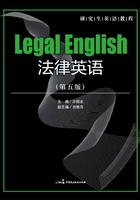
Ⅰ. Answer the following questions.
1. Why was Escobedo's conviction overturned by the U. S. Supreme Court? Why was this decision based on procedural law rather than substantive law?
2. Why is Magna Carta a very important document?
3. What does procedural due process mean in the U. S. ? What premise is the Due Process Model based on?
4. What are the procedural rules that have their roots in the Constitution of the United States?
5. Why wasn't the Bill of Rights originally applied to the states? How was it applied to the states later?
6. What is the significance of the U. S. Supreme Court's holding in Mapp v. Ohio?
7. Can states provide more or fewer protections on rights than those granted by the U. S. Supreme Court? Why?
8. How do you comment on the decisions of the U. S. Supreme Court since the due process revolution began under Warren?
9. Can you explain the relationship of the Bill of Rights and Fourteenth Amendment to the constitutional rights of the accused under American criminal justice system?
10. How do you comment on the“procedural safeguards”? What kind of safeguards do you think are suitable which can protect the rights of the defendant without sacrificing the social safety and public interest?